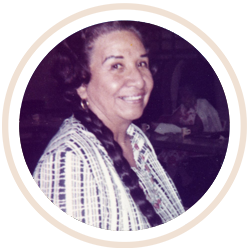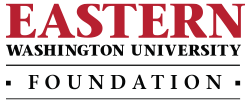The Lucy Covington Initiative
Equip and encourage generations of Native youth to protect and enhance the welfare of their tribes and tackle the most pressing issues facing humanity.
Support
The Lucy Covington Fellows Scholarship
The Lucy Covington Legacy
 Lucy Covington, a long-time tribal rights activist and Colville Tribal Council member, helped change the course of American Indian history through her courageous and selfless style of leadership in the face of great odds.
Lucy Covington, a long-time tribal rights activist and Colville Tribal Council member, helped change the course of American Indian history through her courageous and selfless style of leadership in the face of great odds.
Covington was one of many tribal peoples who worked in the 1950s and 1960s to bring an end to “termination” – an ill-conceived federal policy designed to wrest control of land and natural resources from tribal ownership, by terminating tribal status. Lucy worked with members of her own and other tribes to help preserve tribal sovereignty and self-determination for not only the Colville but for tribes across the country. Covington’s actions and success contributed toward reversing the United States government’s effort to extinguish its responsibilities to American Indian tribes.
After the termination struggle, Covington worked to protect tribal rights and resources, develop tribal services, govern the reservation for the benefit of tribe members, and promote inter-tribal cooperation. Not only was she an example of Native American self-determination in action, but she was also a founder of the movement itself, and her efforts engendered a shift of U.S. policy from termination to independence and autonomy. Covington died in 1982, at age 71.
“Lucy Covington is the most significant advocate for American Indians in the last half of the 20th century.”
– Mark Trahant, The Last Great Battle of the Indian Wars
Project Goal
Foster Native American student success through indigenous leadership in action.
Native Leadership
Leadership driven by indigenous values
• Recruit and retain leading Native American faculty to teach and mentor.
• Bring Native scholars, practitioners and leaders to share experiences, wisdom, research and indigenous knowledge.
• Teach Native students to model leadership in working with people of all races to find and implement solutions in the spirit of Covington’s example of working for change through indigenous leadership in action.
• Create, collect and provide access to authentic contemporary and historic materials that support the lessons of Native leadership, sovereignty and culture.
Leadership House
Cultural, spiritual and academic anchor
• New home of Eastern’s American Indian Studies program.
• A safe and welcoming spiritual and cultural home away from home for Native students.
• A contemporary, longhouse-inspired building where tribes, Native students, faculty and varied communities share events, celebrations, lectures, symposia, cultural exchange and lifelong learning.
College Success
Scholarships and College Readiness
• College preparation for Native youth.
• New financial support for scholarships that recruit, retain and graduate Native American students.
• Robust student services, cross-disciplinary studies and career path access.
• Access to mentoring and internships that help students learn skills to positively impact the increasingly complex political environment for Pacific Northwest and Native American communities.
Planning Sessions
EWU is developing a predesign for the Lucy Covington Leadership House. During this time we will be interviewing key stakeholders to better understand their needs and perspectives related to the facility.
The Impact of Your Gift
• Ensuring affordable access to quality education for Native American students so they can make meaningful professional, cultural and financial contributions to their families and communities.
• Inspiring young Native people to attend college and become leaders.
• Construct the Lucy Covington Leadership House with a mission to transform lives through learning and situated within the traditional territory of the Plateau people, EWU has a special obligation to ensure that indigenous people have access to, and successfully complete, their college educations.
Lucy Covington Archive Project
Through an ongoing partnership with the Colville Confederated Tribes, Eastern Washington University intends to honor Lucy Covington’s legacy. Within the Lucy Covington Initiative, emphasis areas have been identified: supporting future leaders; creating a confluence of culture and causes; and developing of a Lucy Covington archives.
Archival Project
- Creation of an archival facility, both virtual and actual storage, for historic documents pertaining to the work of Lucy Covington. Materials donated will be used for research and continued education about the importance of protecting sovereignty and self-determination.
- Collection of first-person narrative voices about the termination era from elders who were mentored and fought with Lucy Covington to preserve tribal sovereignty.
- Watch Lucy Covington’s Video from 1978
Perspectives on Lucy Covington
View more interviews on Youtube.
In the News
- Sovereignty Through Sustainability Event | Eastern Stories
- Lucy Covington inducted into Native American Hall of Fame | Tribal Tribune
- EWU launches Prairie Restoration Project | Eastern Stories
- Mel Tonasket, Joel Boyd testify on EWU request for Lucy F. Covington Archive funding | Tribal Tribune
- EWU to name campus center for Native American activist | The Seattle Times
- EWU to build campus center named for Native American activist Lucy Covington | The Spokesman-Review
- Covington celebrated with honorary degree: Event Photos | Eastern 24/7
- Honoring Lucy Covington | Tribal Times
Contact
If you're interested in supporting the Lucy Covington Initiative or would like more information please contact us.


Prairie Restoration Project
Developed in cooperation with representatives from area Native communities, the Prairie Restoration Project is a major sustainability initiative that will restore 120 acres of campus land to its native “Palouse” prairie habitat. This project will create a model for boosting regional biodiversity while establishing an educational and recreational space that connects visitors to a long-lost landscape.
Both the Lucy Covington and Prairie Restoration initiatives seek to remind us of our region’s significant cultural and natural history and to serve as demonstrations of EWU’s commitment to conservation, equality, and sustainability. Together, these initiatives represent an approach to understanding how we can establish reciprocal relationships with our natural environment and partnerships with Tribal Communities that will build upon the strength of shared knowledge and decision-making to ensure a vibrant community for generations to come.

